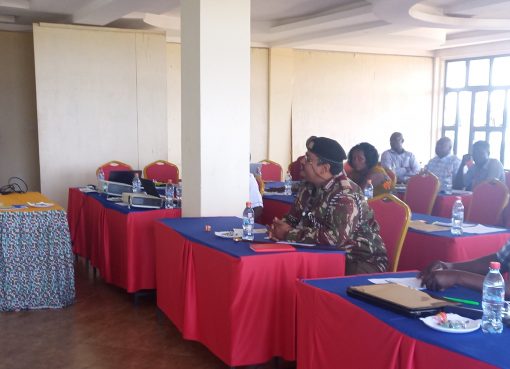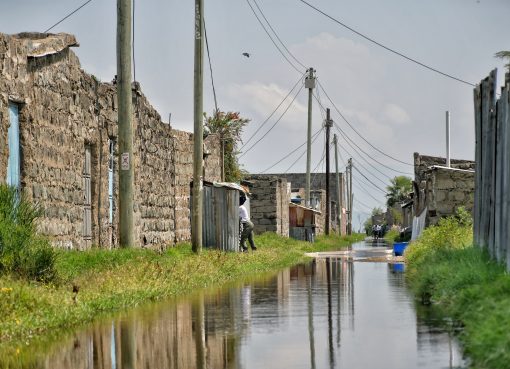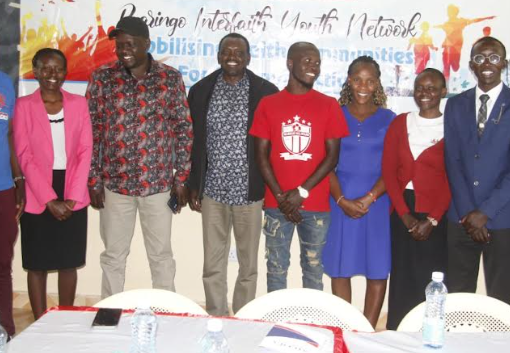The East African Court of Justice (EACJ) is unable to operate optimally due to poor funding.
EACJ Registrar Francis Okubo raised concerns that operations were not fully realized unless governments of member states allocate the enough resources to facilitate a seamlessly running of affairs at the regional court
Okubo said that the Court has only four months in a year to hear and determine cases submitted by the six partner states, making it a tall order for the wheels of justice to run in a timely manner.
“EACJ is unable to expedite cases due to funding constraints. The funds we get from our partner states is not sufficient to accomplish our obligations in record times,” Okubo said.
Okubo who was speaking during the opening of an induction workshop for six newly appointed judges of EACJ in Nairobi further stated that the EACJ judges don’t sit every day the way the national judges sit to hear cases.
“In a year, the judges come to the Court for four months only. This is not enough to handle all cases considering the matters East Africans file in court,” he added, asserting that the judges need a whole year to hear and determine cases because they cater for six countries.
Okubo further stated that nowadays citizens are more alive to their rights and as such more cases are being filed especially for those governments who violate EAC treaties.
“Our call to governments is that they have to obey the treaties. Once they sign, they have to obey it,” he added.
The newly appointed President of the Court Justice Nestor Kayobera expressed his gratitude for the induction saying that the new judges will benefit greatly from shared experiences with the retired and current Judges of the Court who are facilitating the induction.
Acting Chief Justice Philomena Mwilu congratulated the new judges and urged them to take the opportunity to learn more about their work, observing that the court’s role is critical to the promotion of regional integration and good governance in Eastern Africa.
“Your appointment to this Judicial Organ of the East African Community, is therefore a recognition of your knowledge, expertise, and experience in the applicable law, for the resolution of potential disputes and challenges, that are bound to arise in the course of the implementation of the Treaty for the Establishment of the East African Community,” she said.
She added that the new judges’ appointment comes at a time of profound national, regional, and international turbulence, occasioned by the Covid-19 pandemic, the re-ordering of trade relations triggered by Brexit, the intensifying asymmetry in North-South relations, international terrorism and the never-ending threats to good governance, democracy and human rights in our region.
Mwilu said all these will have a direct impact on the work of the Court, thus cementing your individual and collective destiny with history.
The Ag. Chief Justice emphasized the role of the East African Court of Justice (EACJ) which is critical to the promotion of regional integration and good governance in Eastern Africa.
She observed that the appointments are recognition of their knowledge, expertise and experience in the applicable law for the resolution of potential disputes and challenges that are bound to rise in the course of the implementation of the Treaty for the EAC.
Mwilu’s remarks were read by Supreme Court of Kenya Judge Smokin Wanjala while officiating the Induction of six New Judges of the East African Court of Justice held in Nairobi.
The summit Heads of East Africa appointed six judges of the EACJ on February 27, this year.
First instance divisions are Justices Yohane Masara, principal judge, Richard Muhumuza and Richard Wejuli. In the Appellate division the new judges are Kayobera who is the President of the court, Kathurima M’inoti and Anita Mugeni.
In attendance was the outgoing President Hon Justice Dr Emmanuel Ugirashebuja, outgoing Principal Judge Lady Justice Monica Mugenyi, Retired Principal Judge Justice Jean Bosco Butasi and retired Judge Hon Aaron Ringera.
The East African Court of Justice (EACJ or ‘the Court’), is one of the organs of the East African Community established under Article 9 of the Treaty for the Establishment of the East African Community.
Established in November 2001, the Court’s major responsibility is to ensure the adherence to law in the interpretation and application of and compliance with the EAC Treaty.
Arusha is the temporary seat of the Court until the Summit determines its permanent seat. The Court’s sub-registries are located in the respective National Courts in the Partner State. The workshop will run for five days.
By Alice Gworo





